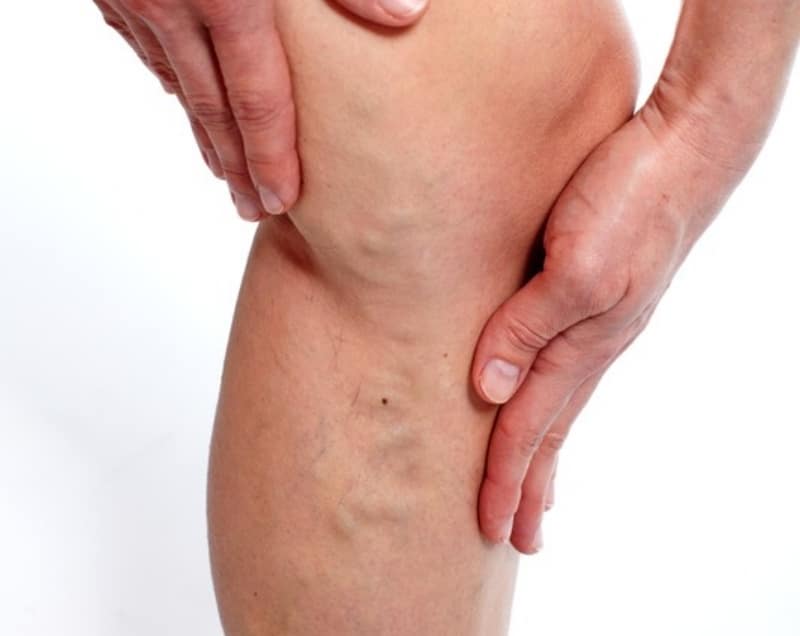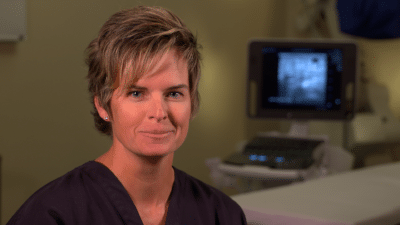Varicose Veins Symptoms That Can Save Your Life
 Vein disease is incredibly common in the United States. According to some estimates, 50-60 million American men and women have some form of venous disease. Varicose veins are among the most common of these.
Vein disease is incredibly common in the United States. According to some estimates, 50-60 million American men and women have some form of venous disease. Varicose veins are among the most common of these.
In fact, varicose veins are so common that it can be easy to forget that they could also be an indication of more serious health issues lurking beneath the surface. That is why it is a good idea for anyone with even the slightest sign of venous disease, including varicose veins, to at least consult a vein specialist to see whether they are at risk for more serious conditions, such as chronic venous insufficiency (CVI), leg ulcers, or worse.
Varicose Veins Symptoms That Could Be Life Threatening
Not all symptoms hold the same weight, however. It is rare, but it is not impossible for clots to form in the visible veins and move into the deeper venous system.
If your leg suddenly swells and becomes painful, hard, hot, and red, or if you experience lightheadedness, rapid pulse or chest pain, seek medical help immediately. A leg that swells suddenly can be a sign of a blood clot (deep vein thrombosis); accompanying chest pain and lightheadedness could mean the clot has moved into your lungs (pulmonary embolism or PE), which can be fatal.
When is it Time to Consult a Vein Specialist For Your Varicose Veins?
While not immediately life threatening, it is still very important that you do not ignore these serious indications of chronic venous insufficiency. If left untreated, the condition could lead to leg ulcers or even dangerous blood clots. Seek treatment if your:
- Varicose veins bleed
- Legs bleed after minor injuries
- Skin around veins changes color
- Vein hardens
- Skin on ankle and calf becomes thickened and discolored
- Veins or legs become itchy, dry or scaly
- Visible sores or rash-like areas on the leg, or near the ankle
- Dull aching leg pain that interferes with your daily activities
- Persistent leg fatigue
- A family history of clot-related conditions
In Short, Don’t Ignore any Symptom of Varicose Veins
There are other more typical symptoms of varicose veins. Even seemingly harmless symptoms should not be ignored. It may happen slowly, but vein disease is always chronic and progressive.
- Visibly twisted and bulging veins
- Enlarged purple veins
- Itching of the skin around veins
- A feeling of heaviness in the legs which often gets worse when standing or sitting for extended periods
- Mild swelling of the feet and ankles
Stephanie M. Dentoni, MD, a vein disease expert who practices at the California Vein & Vascular Institute in Stockton, California, has treated several people who thought they didn’t have significant symptoms when they, in fact, did.
“…They have learned to live with the discomfort and think it's a normal thing,” says Dantoni. “For some, it’s only when they are asked specific questions about leg discomfort such as if their legs ached at the end of the day, if they have a little bit of swelling, if their legs feel better when elevated at the end of the day, that they discover there is an underlying problem with their vein health.”
Who Should I Consult if I am Concerned about my Varicose Veins?
Not all vein clinics offer the same kind of expertise. Clinics that focus on diagnosing and treating venous disease of the lower limb will have more experience treating your specific condition and can offer you the newest and most effective procedures available.
Phoenix, Arizona Vein Doctor Nurse Practitioner Jilanne Rose, of Advanced Vein Institute of Arizona, has successfully treated thousands of individuals with varicose veins, spider veins, leg ulcers, chronic venous insufficiency, and other venous problems of the lower limb. She cautions that there are some primary care physicians who may tell patients that their vein symptoms are nothing to worry about, or that there is no point to treatment because the symptoms will just come back.
“Consequently, patients will go years without vein treatment, and then encounter a serious problem that’s much more difficult to fix,” she notes, adding that diagnosis and treatment of vein disease has progressed a lot in the last few years.
“For anyone with symptoms of varicose veins, even without physical discomfort or pain, it’s safest to take the ‘prevention’ route and see a vein specialist,” she urges. “An exam and duplex ultrasound can detect early signs of varicose veins, even those that may not be visible to the human eye.”
To find out if you are at risk for chronic venous insufficiency, or any other venous disease of the lower limb, download and fill out this assessment.
Want to speak with someone right away? It's really easy to talk to Jilanne at our vein center. Just call the office or schedule now get a conversation started about your symptoms and whether vein treatment may be needed.
You May Also Like: How to find the Best Varicose Vein Clinic for your Vascular Health; Deep Vein Thrombosis blood clots can be deadly but are preventable; Treatments and Intervention for Venous Insufficiency
Entrevista con el Dr. Rose Durante nuestras entrevistas en video con Jilanne Rose le pedimos que nos contara algunas historias sobre sus experiencias en el tratamiento de las varices a lo largo de los años. Esta historia se trata de un paciente que se había despojado de las venas realizadas hace años y tenía miedo…
Read MoreDr. Rose Interview During our video interviews with Jilanne Rose we asked her to tell us some stories about her experiences in Varicose Veins Treatment over the years. This story is about a patient who had vein stripping performed years ago and was afraid of going through the process again because of the pain she…
Read MorePregunta: ¿puede usted conseguir congestión pélvica cuando usted nunca ha estado embarazado, y puede interferir con flujo de la orina?
Read MoreQuestion: Can you get pelvic congestion when you have never been pregnant, and can it interfere with urine flow? Answer: Pelvic congestion syndrome, although uncommon, can occur in women who have not been pregnant. These varicose veins in the lower abdomen typically do not cause problems with urination. Best to be evaluated by a gynecologist…
Read MorePregunta: tengo dolor y venas de araña apareciendo sobre todo en la zona del muslo después de mi ablación que fue hace 2 meses. GSV cerrado y SSV bien. Estoy usando 20-30 mmHG medias de rodilla-alta todos los días. ¿Cuál es la causa?
Read MorePregunta: tuve tratamiento de la escleroterapia de la espuma para la vena varicosa hace 2 meses por una técnica llamada catéter de flebogrif y leí que puede causar complicaciones como el movimiento. ¿Sigue siendo probable el riesgo? ¿Y qué sucede con la sustancia química usada en la espuma después de la inyección, permanece en el…
Read MoreQuestion: I had foam sclerotherapy treatment for varicose vein 2 months ago by a technique called flebogrif catheter and I read that it may cause complications like stroke. Is the risk still probable? And what happens to the chemical substance used on the foam after the injection, does it remain in the blood stream and…
Read MoreQuestion: I have pain and spider veins popping up mostly in the thigh area after my ablation which was 2 months ago. GSV closed and SSV ok. I am wearing 20-30 mmHG knee-high stockings every day. What is the cause?
Read MorePregunta: ¿Cuánto tiempo toma la cirugía de la vena varicosa en sí misma y cuánto hora debo esperar para la recuperación?
Read MorePregunta: ¿Qué puede decirme un examen de reflujo venoso? ¿Cómo mide el tratamiento la efectividad de mis venas?
Read More
